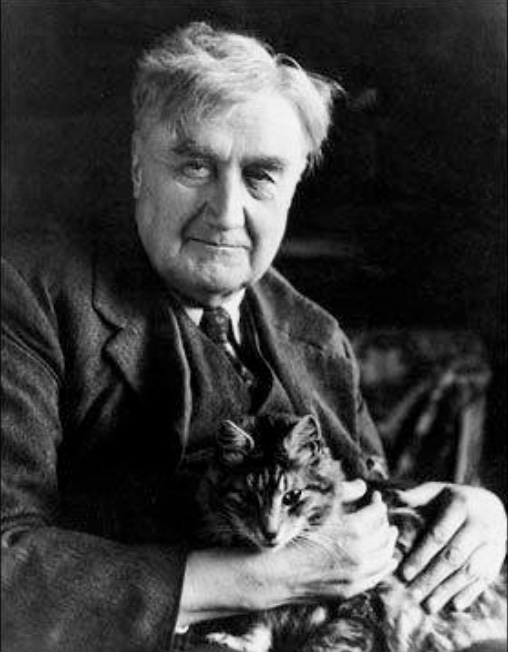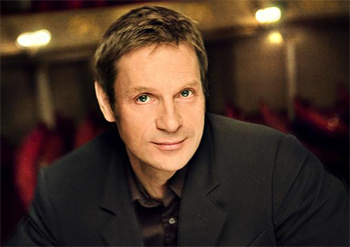By Daniel Hathaway
The first installments of three repeating programs drop today at 7:30: No Exit’s “Surrealist Games” at Kent State, Apollo’s Fire’s “Splendour in London” (in Akron), and The Cleveland Orchestra’s all-Mahler program featuring baritone Simon Keenlyside (pictured).
Also at 7:30, Gregory Ristow leads the Oberlin College Choir & Chamber Singers in a varied program in Warner Concert Hall, and at 8, Cleveland Uncommon Sound Project presents the trombone trio of Jeb Bishop, Matthias M. and Matthias M. as well as sound and visual artist Sandy Ewen at Convivium 33 Gallery.
For details, visit our Concert Listings.
ANNOUNCEMENTS:
The Center for Arts Inspired Learning is sponsoring an Instrument Drive on Saturday, October 14 from 10 am to 3 pm to benefit the Play It Forward! ® Cleveland free music program for 3rd to 12th grade youth.
Donated instruments will be gifted to Cleveland children participating in recreation center programs throughout the city. The effort is a collaboration between Assembly for the Arts, Center for Arts-Inspired Learning (CAL), Councilman Kevin Conwell, The Cleveland Orchestra, Famicos Foundation, The Music Settlement, Rock & Roll Hall of Fame and Happy Dog Cleveland.
Details here.
TODAY’S ALMANAC:

Writing in The Guardian, Hugh Morris reconsiders the works of Britain’s favorite composer in his anniversary year.
“When encountering an unfamiliar composition by Ralph Vaughan Williams, I find myself asking the same questions: where have I heard this before? Do I know this already or am I simply imagining it?
“Clear answers are offered by Eric Saylor’s groundbreaking biography, released to coincide with Vaughan Williams’s 150th birthday. Saylor approaches his subject with fresh ears and a host of thoroughly researched and well-rounded insights that look set to change the discourse surrounding the composer in his anniversary year.”
The range of RVW’s work was vast. Let’s suggest just two radically different compositions that reflect his lifelong interests.
The first represents his close association with English folksong, of which he collected numerous examples and made arrangements for various combinations of voices and instruments. He so internalized that repertoire that he could write easily in the style, as proved by his settings of Edwardian poet A.E. Housman’s verse in Along the Field, simply but eloquently scored for solo voice and violin. Listen here to a performance of the cycle by soprano Marie Henriett Reinhold and violinist Dietrich Reinhold.
The other extreme finds Vaughan Williams exploring the full range of drama at his disposal as an early 20th century composer. Orchestrally, this expresses itself in his symphonies and in such works as Job, a Masque for Dancing, with its frightening musical depictions of Satan, but otherwise in A Vision of Aeroplanes, his charmingly titled setting for organ and chorus of the Vision of Ezekiel from the Hebrew scriptures. The organ part is as fearsome for the keyboardist as the musical declamation is for the singers. Stay with it to the end in this performance by the University of Cambridge’s Clare College Choir.
Nearly everyone has a favorite high school English teacher, and mine was the late Martha Herrick, who deadened the blow of exams and quizzes by playing Vaughan Williams on her classroom phonograph at Topeka High School.
She was a true fan who once dreamed about watching RVW composing in his study. The vision was so detailed and compelling that she wrote about it in a letter to the composer’s widow, Ursula, whom she had never met. The reply — Martha had described her husband’s work habits perfectly although no one but the composer had ever entered his creative sanctuary — initiated a friendship renewed over tea in London in many subsequent years.




